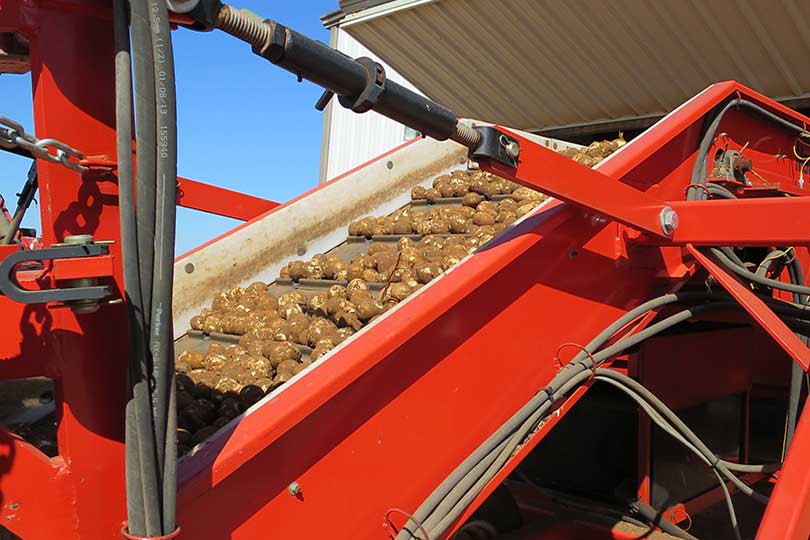Texas potato farmers face a psyllid with growing resistance to insecticides.
The pest made its way to the Rio Grande Valley from Mexico in the 1990s and has since wreaked havoc on farmers, according to AgriLife Today. Mexico’s lack of stringent application regulations for insecticide use on the potato psyllid has the pest growing resistance, leaving Texas farmers with a major obstacle.
“The aggressive use of the neonicotinoid product in Mexico has allowed the psyllids to develop a resistance over time to the insecticide,” Dr. Ada Szczepaniec, Texas A&M AgriLife Research entomologist in Amarillo, said.
But Szczepaniec is researching methods of control and treatments for the pest.
She has been capturing infected and psyllid-resistant varieties of potatoes to determine resistance levels of the insects and to develop new insecticide treatments that could be used to control them.
Potato psyllids are tiny insects that transmit a disease—zebra chip—that causes the starches in the potato, when fried as a chip or French fry, to harden and turn dark brown. The zebra chip pattern makes the food product look unappealing and taste bitter, Szczepaniec said.
The pesticide can be applied during planting to help manage the pests.
“It’s been a great control measure and suppressed the psyllids very well,” she said. “However, there have been reports, especially in the Valley, that some populations of psyllids are no longer effectively controlled by these insecticides. This has not been confirmed experimentally until now, and this is one of the priorities of our research program.”
According to AgriLife Today, Szczepaniec said she will be testing other insecticides as well once it’s determined which populations are no longer susceptible to the neonicotinoids.

